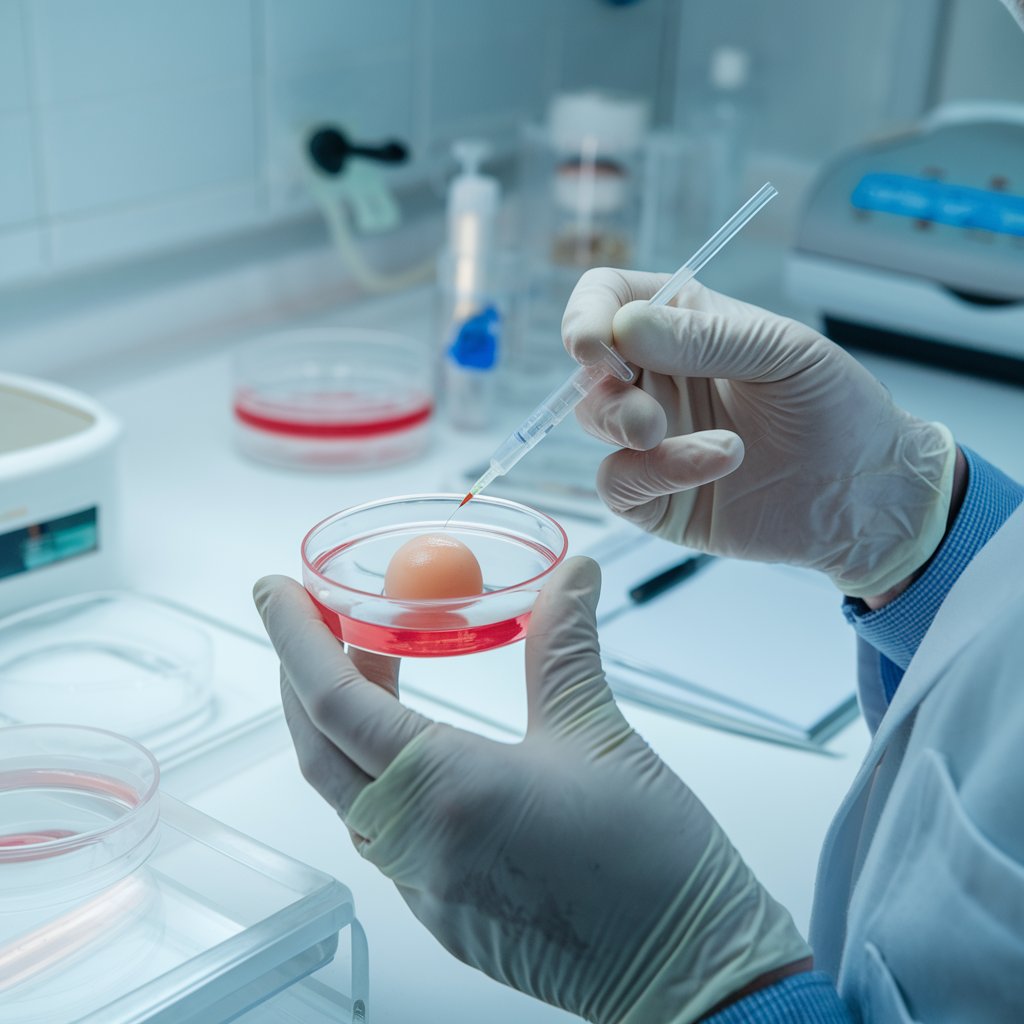
Follicle-stimulating hormone (FSH) and luteinizing hormone (LH) are crucial in regulating female fertility. These hormones are produced by the pituitary gland and play a vital role in the menstrual cycle, ovulation, and overall reproductive health. Imbalances in FSH and LH levels can lead to fertility issues, making it important for women trying to conceive to understand how these hormones function.
What is FSH?
FSH, or follicle-stimulating hormone, is responsible for stimulating the growth of ovarian follicles in the first half of the menstrual cycle. Ovarian follicles are small sacs in the ovaries that contain immature eggs. As the follicles grow, they produce estrogen, which helps regulate the reproductive cycle and prepare the uterus for pregnancy. FSH levels naturally fluctuate throughout the cycle, peaking just before ovulation.
When FSH levels are too low, follicle development may be impaired, leading to irregular ovulation or even the absence of ovulation (anovulation). On the other hand, elevated FSH levels can indicate reduced ovarian reserve or poor egg quality, which are common issues as women age.
What is LH?
Luteinizing hormone (LH) works closely with FSH to regulate the menstrual cycle. While FSH stimulates follicle growth, LH triggers ovulation. When the follicles are mature, a surge in LH levels causes one of the eggs to be released from the ovary—a process known as ovulation. This typically occurs around the middle of the menstrual cycle, about 14 days before the next period.
After ovulation, LH helps maintain the corpus luteum, which is the remaining part of the follicle that produces progesterone. Progesterone is critical for supporting a potential pregnancy by thickening the uterine lining and creating a suitable environment for the embryo to implant.
How FSH and LH Work Together
FSH and LH work in tandem to control the menstrual cycle and ensure that eggs are properly developed and released. At the beginning of the cycle, FSH promotes the growth of follicles. As the follicles develop, estrogen levels rise, signaling the pituitary gland to reduce FSH production and begin producing LH. The LH surge then triggers ovulation, releasing the mature egg.
After ovulation, LH levels drop, and the corpus luteum produces progesterone. If pregnancy does not occur, the corpus luteum breaks down, and progesterone levels fall, leading to menstruation and the start of a new cycle.
Importance of FSH and LH in Fertility Treatment
In cases of infertility, testing FSH and LH levels can provide valuable information about a woman’s reproductive health. High FSH levels, for example, may suggest diminished ovarian reserve, while low levels of LH can indicate issues with ovulation. These tests are often performed at an infertility clinic in Lahore to diagnose fertility issues and determine the best course of action.
Role of FSH and LH in IVF Treatment
IVF treatment (In Vitro Fertilization) relies heavily on the regulation of FSH and LH to promote the development of multiple eggs for retrieval. During the IVF process, fertility specialists use hormone injections to control the levels of FSH and LH, stimulating the ovaries to produce several mature eggs. This increases the chances of a successful fertilization.
FSH injections are typically administered in the early phase of the IVF cycle to stimulate the growth of multiple follicles. As the follicles approach maturity, LH injections or a similar hormone known as hCG (human chorionic gonadotropin) are given to trigger ovulation. Once the eggs are retrieved, they are fertilized in the lab, and the resulting embryos are transferred to the uterus.
Monitoring FSH and LH Levels
Throughout the IVF process, FSH and LH levels are closely monitored to ensure the ovaries are responding to the treatment. If FSH levels are too high or too low, adjustments in medication may be necessary to optimize the chances of success. Additionally, hormone levels are checked to ensure that the eggs are maturing properly and that ovulation occurs at the right time.
Consulting an Infertility Specialist
An infertility specialist can help couples understand their hormone levels and how they affect fertility. Specialists at reputable clinics can interpret FSH and LH test results and recommend appropriate treatments. Whether you’re pursuing IVF or another form of fertility treatment, having a knowledgeable infertility specialist guide you through the process is essential.
Conclusion
FSH and LH are fundamental hormones in regulating female fertility, particularly when it comes to follicle development and ovulation. Imbalances in these hormones can lead to fertility challenges, making them a critical focus in infertility evaluations and treatments. If you’re facing fertility issues, visiting an infertility clinic in Lahore can provide the testing and expert care needed to assess your reproductive health.